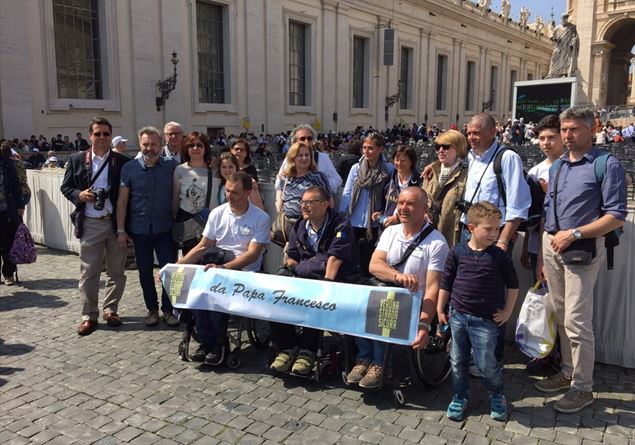For Catherine Verdier, author of the book “#I like others”, at the editions of the Rocher, it is advisable to prevent school harassment by education, from an early age. Emotion, self -esteem and empathy are the keys to this approach which allows students to teach the basics of good relationships at school.
For effectively prevent school harassmentCatherine Verdier, psychologist, author of the book “#I like others “at Éditions du Rocher offers a solution: The 3 “E” method. This approach consists in teaching, on a daily basis and from an early age, the emotional vocabularythroughout the growth of the child. It is also strengthen self -esteem, and develop empathy. According to some scientific studies (KIVA program in Finland), “the implementation of such a policy decreases by 75 % the risks of school harassment while promoting a better social climate between children, and therefore better learning capacities “specifies the author in her book.
1 – Learning emotions
“”If you don’t understand your own emotions, you can’t recognize that of othersand therefore the needs associated with these emotions“. This is the reason why this learning must be done as soon as possible by encouraging toddlers to put words on what they feel. Thus, when a classmate begs to cry, a child must be able to understand that he must stop annoying him, help him by going to seek an adult, or simply console him. The victim can then more easily talk about his emotions.
2- Strengthen self -esteem
“”The victims, as much as the stalkers, have a very diminished self-esteem“”specifies Catherine Verdier. This is also the reason why “”they often need to lower their comrade to feel superior and strong“”. For the psychologist, strengthening self -esteem involves a benevolent education based on respect and dialogue.
“The victims, as much as the stalkers, have a very diminished self-esteem.”
Nevertheless, children also need a manager, especially those who are subject to violent impulses. But you need a happy medium. “”The “too much” self -esteem or “not enough” lead to the same consequences : the feeling of having no value, of not being loved, self -depicting, the impression of not having your place in the family or at school, to hate yourself to the point of self -managing.. “Explains the author in her book #I like others.
3 – Transmit empathy
In a case of school harassment, it is essential that children are able to be compassionate, To understand that the situation is abnormal. There will be more chance that they dare to talk about it rather than staying spectators and witnesses.
Indeed, There are logically as many stalkers as victims (if not anymore) and between 3 to 4 witnesses by harassment situationrecalls Catherine Verdier. Also, “Empathy exists from an early age. Experiences were carried out on newborns in a year who stopped playing when they saw their parents drop a pen“, Says the psychologist. But this empathy disappears at some point,”Just ask teens to put themselves in the place of someone else, she continues.
Empathy is therefore a state of mind that cannot be learned, it is transmitted. From childhood, parents can show a good example, especially when they leave their place in the bus to an elderly person, that they help them wear their shopping … On the other hand, no need to punish a child to “push him to surpass himself”, to “make him understand the rules” or help him become the best. “”Punitive education or severe teaching cause the opposite effect: the child becomes insensitive and without empathy, leading to anti-social behaviors“warns the specialist.
The 3rd method in the face of cyber-harassment
How to manage to put yourself in the place of the other, to perceive your suffering, when you are behind your screen? In this case, a click, a sharing is enough to become harasser. Nevertheless, “Cyberharge is an extension of what is happening in the playground, the opposite: everything starts from an insult or a photo published on the net, and the child gets harass at the recessspecifies Catherine Verdier. We therefore see the consequences when schoolchildren find themselves face to face. We realize the state of the victim, who isolates himself, lowers the head and shaves the walls … “. It is therefore up to everyone to be attentive to what is happening around you, and all the adults surrounding children (parents, teachers, doctors, etc.) have a role to play.
Workshops to restore confidence to children
Catherine Verdier, also founder of PsyFamille, has been animating for several years self -confidence workshopstrained by age groups, from 6 years old. Eight sessions including fun exercises, games as well as scenarios, allow children to gradually assert themselves, to recognize their qualities and their strengths, to accept their self -image and to express their emotions. Finally, “Self -assessment is also successful to say” no “. “These self -confidence workshops offer the possibility of exploring different types of possible reactions to disturbing situations, such as expressing a disagreement or reporting an unfair situation, etc.”.
The workshops “Stop Bullying and Go On”implemented by the Marion La Main Tretue association, make it possible to prevent and fight against school harassment. This therapeutic workshop is offered in prevention before entering college, or for victims of school harassment. At first, children participate in a collective workshop on a day, intended to develop their self -esteem and react well according to situations, in order to be able to protect themselves. Then, in a second step, parents are invited to exchange with each other to obtain advice that will allow them to help their child overcome a situation of school violence.








